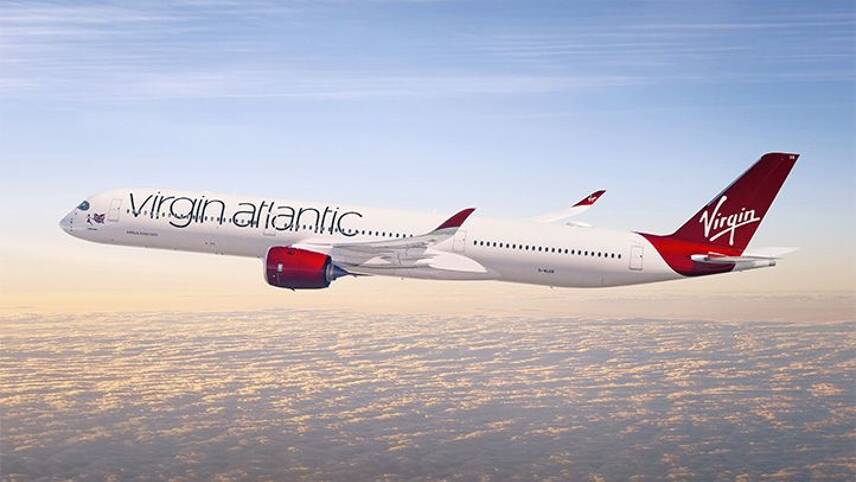Register for free and continue reading
Join our growing army of changemakers and get unlimited access to our premium content

The deal will start in the first half of this year
The SAFs will be delivered by Neste in the first half of the year. Virgin Atlantic will use the fuel at London Heathrow as it builds towards its 10% SAF target.
The 2.5 million litres of SAFs are made by Neste from renewable waste and residue raw materials. The company claims the SAFs have the potential to reduce emissions by up to 80% over the lifecycle compared to traditional fossil-derived jet fuel. ExxonMobil is also involved in the initiative, acting as Virgin Atlantic’s largest fuel supplier at London Heathrow.
Virgin Atlantic’s VP of corporate development Holly Boyd-Boland said: “After fleet renewal, SAF represents the greatest opportunity to decarbonise aviation in the short to medium term. This supply is the beginning of commercial SAF at scale for Virgin Atlantic and whilst only enough to operate 140 flights between London and New York, it’s a starting point.
“To meet our 10% SAF target in 2030 we need to deliver this volume more than seventy times over, requiring cross-industry and Government action to support commercialisation of SAF at scale, particularly in the UK. We will continue to work closely with Neste and ExxonMobil, as well as wider industry partners, to find innovative solutions to achieve this goal.”
Last year, Virgin Atlantic confirmed new carbon targets that will push the company towards a goal of reaching net-zero emissions by 2050.
Virgin Atlantic has committed to reducing emissions by 15% per revenue ton kilometer (CO2/RTK) by 2026 through a continued fleet transformation and efficiency programme. By 2030, the company will aim to deliver a 15% net reduction in total carbon emissions, with 10% of all fuel sources from SAFs. By 2040, the company will aim to deliver a 40% net reduction in total emissions.
JetBlue
In related news, American airline JetBlue has announced a new partnership with Salesforce that will utilise data to help reach net-zero emissions.
JetBlue is the first airline to use Salesforce’s Net Zero Cloud to track carbon emissions, while Salesforce has joined the airline’s Sustainable Travel Partners initiative to help source SAFs.
Salesforce will source around 1.5 million litres of SAFs which will reduce around 2,730 metric tonnes of carbon emissions. Salesforce will also access emissions data that will help drive employee engagement.
“Accessing real-time, granular, and insightful emissions data has historically been a pain point as we track and work toward our decarbonization targets. We are excited by the prospect of quickly compiling accurate and up-to-date emissions data in an easy-to-use format through the use of Net Zero Cloud,” JetBlue’s director of sustainability and environmental social governance, Sara Bogdan, said.
“We’re excited for Net Zero Cloud to not only help us strategize and plan for our own 2040 Net Zero target, but to also help us share that data with our Sustainable Travel Partners, providing first-of-its-kind emissions reporting based on each corporate travellers’ actual JetBlue flights. As the world comes together to reduce our collective environmental impact, collaborations like these with Salesforce are vital as we share expertise in pursuit of shared goals.”
In 2021, Salesforce joined the Sustainable Aviation Buyers Alliance to help accelerate investment in SAFs. The company is also part of the First Movers Coalition with a commitment to replace 5% of conventional jet fuel demand with low or no-carbon alternatives.
Matt Mace


Please login or Register to leave a comment.